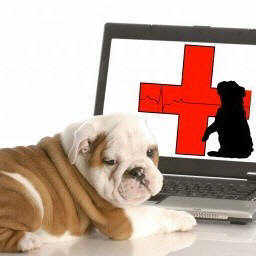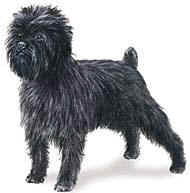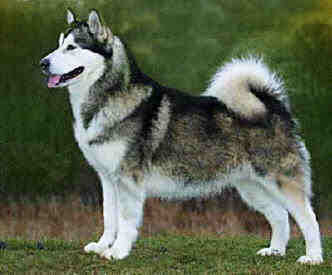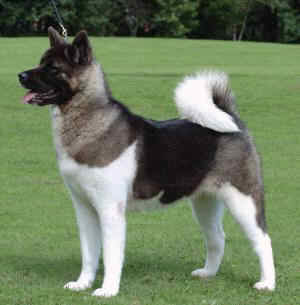Dog Care: Dog Feeding & Dog Nutrition
As dog owners and people who care deeply for animals and
wildlife, we wanted our Dog Encyclopedia to be a website that could
empower pet owners to create the most positive, loving
environment for their dogs. Dog Encyclopedia realizes that owning a
dog is like adding a new member to your family.
If you are what you eat,
then so is your dog! Your dog needs proper nutrition to live a long,
healthy life. It is important to be educated about everything your
dog eats, from daily meals to special treats. Help your dog thrive
with the best nutrition possible. There's no denying that one of the
most basic needs of dogs is proper nutrition. It is also one of the
best ways to keep your dog healthy. Thousands of food options exist
for dogs, so choosing one for your own dog can be quite a struggle.
Opinions about canine nutrition vary among vets, breeders, trainers
and other dog owners. Bottom line: experts don’t always agree on the
best type of dog foods because there is not just one answer.
Ultimately, you are the one who needs to decide what food best suits
your dog. Do plenty of research so you can make an informed
decision.
How Often to Feed Your Dog
Puppies should not be separated from their mother before they are 8
weeks old. At three to four weeks, puppies should begin eating some
solid food. You can try mixing three parts food with one part water
or puppy replacement milk . This will make the food easier for the
puppy to digest. At 6-8 weeks of age you should Feed your puppy 3-4
times a day. Puppies have different nutritional needs than adult
dogs. Choose a puppy food that provides the appropriate balance of
nutrients your puppy needs. Be sure they are getting the right
amount of protein and calcium, and the proper amount of calories.
Check the label to determine if you are feeding your puppy a
balanced diet. Meat should be the first ingredient on the label.
Once the puppy is eight weeks old he should be fed twice a day.
Continue with puppy food until the dog is a full year old. When dogs
reach eight to nine months old feeding can be reduced to once a day.
The correct amount to feed your dog depends upon the dogs size and
should be listed on the dog food.
Nutrition Choices
The Association of American Feed Control Officials (AAFCO) has
developed profiles for dog and puppy nutrition. These standards are
reflected on the dog food label. This information will give you an
idea of the food's content, but beware - the labels can be
misleading. Just because a food meets AAFCO requirements, it does
not mean that is the best food for your dog. Look for food companies
that exceed AAFCO guidelines and use high-quality ingredients that
are human-grade if possible. Avoid foods that contain chemical
preservatives and fillers like wheat, corn and soy. Many experts now
recommend rotating diets every 2-6 months if you are feeding
commercial dog food. This can mean changing formulas within the same
food brand, or even changing food companies entirely. When feeding
homemade diets, a variety of foods should be offered. As
always, consult your veterinarian about the best food choices for
your dog.
In general, dog food choices boil down to the following categories:
Holistic / Natural Commercial Diets -Natural and
holistic dog food companies pledge to use high quality ingredients
without fillers and by-products. They go the extra mile to add
beneficial nutrients without adding unnecessary chemicals. Despite
the higher cost of these foods, many dog owners attest to the
benefits these diets have provided, such as shinier coats, increased
energy, and better overall health.
Veterinary Prescription Diets -Therapeutic
diets for dogs have had a profound impact on the quality of
life for the pets consuming these diets. Requiring a
prescription from a veterinarian, therapeutic diet use is
considered a form of specifically targeted therapy and assist in treating and preventing a
wide variety of maladies.
Premium Dog Food -Premium dog food companies
often use higher quality ingredients than economy or generic dog
foods and contain fewer chemical preservatives. Diets are typically
formulated to meet or exceed AAFCO standards. Be aware that some
companies have been known to change formulas from time to time.
Economy / Generic Dog Food -Generic dog food
can often be lower in nutrients and higher in fat products. Be sure
to read the label carefully for nutritional information.
Homemade / Raw Diets- Use cheaper cuts of meat,
fresh vegetables, and cooked grains. Often you can use the same
foods you cook for your family. This alternative will require some
reading on your part before you start.
Dog Treats
We love to give our dogs treats, whether for reward training,
general good behavior, or for no reason at all. Choosing the
appropriate treat varieties can help keep our dogs healthy and
happy. Treats can enhance a healthy diet and should never make up
more than 10% of a dog’s daily food intake. Dental chews and
bone-like treats are not made from animal bones. Some are made from
corn starch or other digestible materials. Because of the degree of
chewing required to consume these treats, some experts believe they
promote dental health. Though safer than real bones, these treats
can still cause gastrointestinal blockage if “gulped”. Always choose
the appropriate size chew for your dog. Be sure your dog is
supervised when consuming chews. Bones, pig ears, and hooves from
animals should never be given to your dog. These can cause
gastrointestinal perforation or blockage and chipping or breaking of
teeth. Bones of any type are very dangerous for
all types of dogs. Offer your dog dental chews and other digestible
bone alternatives instead. Treats are useful during training due to
their pleasing taste and texture. Use small sizes during training
for immediate gratification. Choose a brand that meets the same
standards as high-quality dog foods.
What Not to Give Your Dog
Some foods which are edible for humans, and even other species of
animals, can pose hazards for dogs because of their different
metabolism. Some may cause only mild digestive upsets, whereas,
others can cause severe illness, and even death. Table scraps are
not nutritionally balanced. They should never be more than 10% of
the diet. Fat should be trimmed from meat; bones should not be fed.
Items to avoid giving to your dog include chocolate, coffee, tea,
and other caffeine, grapes, raisin, hops, macadamia nuts, baby food, onions, and
sugary foods.












